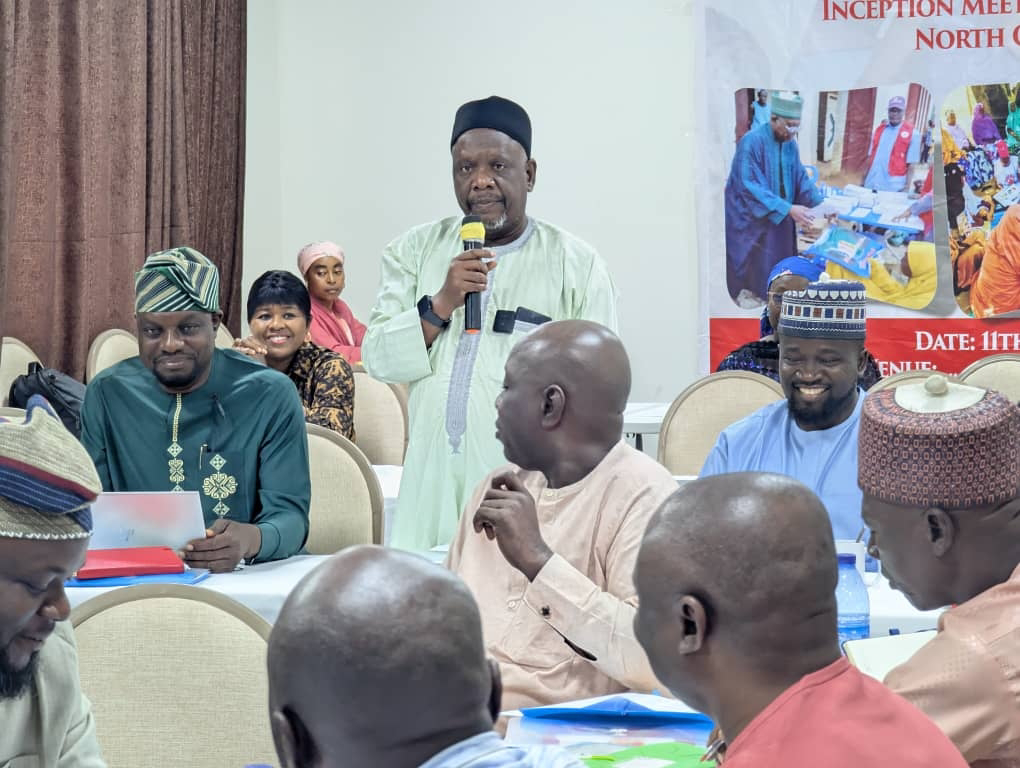By Khalid Idris Doya The Nigerian Red Cross Society has reaffirmed its commitment to complementing government efforts in tackl...
By Khalid Idris Doya
The Nigerian Red Cross Society has reaffirmed its commitment to complementing government efforts in tackling malnutrition, particularly among under-5 children across nine states in Nigeria.
This was disclosed by the National President of Nigerian Red Cross Society, Prince Oluyemisi Adetayo Adeaga, at the opening ceremony of a two-day Malnutrition Emergency Appeal, inception meeting with North-East and North-Central zones, held in Bauchi on Friday.
The project targets under-five children jn two zones as Red Cross launched multi-state emergency nutrition intervention which implementing in nine states, Borno, Adamawa, Yobe, Katsina, Zamfara, Sokoto, Niger, Benue, and Taraba.
Adeaga was represented by National Disaster Adviser, Dr. Babale Adamu, emphasised the urgency of addressing food insecurity and it's potential long-term impacts.
He said, "When you talk about malnutrition, it is not a very good thing, nothing good per se. So, we are talking about food insecurity, something that is devastating, a catastrophy, that will be able to affect all your food in your own community. So by saying, we are just telling people an antithetical assumption."
Adeaga called for closer collaboration with government agencies, noting that the Red Cross, as an auxiliary to public authorities, cannot tackle the crisis alone.
He added that, "We are working. But then, we have not yet used all these names, antithetical assumptions. And when you look among yourselves, you can see that we have not invited government functionaries.
"So it is the key. It is the key that we understand that we cannot function alone. We are running a government of Nigeria. So that is the advice that we decided to do now."
He stressed also that, "So, we are trying to now have a small fraction of what the government usually does. So, that's why we now have this thing, and with your full collaboration, full efforts to be able to achieve this objective. I don't know if I want to add my way or not."
According to him, "Some people, I think, they have prevented it. I can tell you the truth, they are nutritious. Nutritious is all things that you know. So now, which way do you want to go? If they have this thing, are you going back more than an hour to do the prevention? Or which way do you want to now champion this?."
"We are here to support the government, not to work in isolation. We must involve government representatives at all levels to strengthen the impact and ensure sustainability of interventions," he added.
Also speaking, Dr. Aminu Abdullahi, Acting Director of the Health and Care Department of the Nigerian Red Cross, described malnutrition as a national emergency.
He explained that the Red Cross has launched an appeal to the International Federation of Red Cross Red Crescent (IFRC) to support Nigerian government's response.
He explained that, 'So, whatever we do, is, we are just trying to see how we can support the government. So, based on that, we are able to get some funds that we will try to see how we can contribute our quota in nine states, which are the base states."
Dr. Abdullahi noted that Borno, Adamawa and, Yobe were chosen as pilot states, based on previous experience with smaller-scale nutrition projects. He added that intervention involved working closely with local communities through initiatives like Mother's Clubs.
Aminu added that, "We train local women using community-based approaches on how to prevent, detect, and manage malnutrition using available local foods. They also learn how to refer severe cases to nearby health facilities for treatment."
He emphasised the importance of addressing root causes such as poverty, lack of knowledge, and poor caregiving practices.
"We must stop treating symptoms while ignoring the causes. If we don’t empower caregivers and tackle underlying issues, we’ll keep seeing the same malnutrition cases year after year," he stressed.
According to him, the intervention also includes screening, referral systems, reintegration support, and community education to break the cycle of malnutrition.
Dr. Abdullahi also stressed the need for community ownership, government partnership, and donor collaboration for long-term solutions.
Representatives of the participating states in their goodwill messages commended the Nigerian Red Cross Society for the timely initiative and pledged their support to ensure the success of the malnutrition response efforts.











No comments